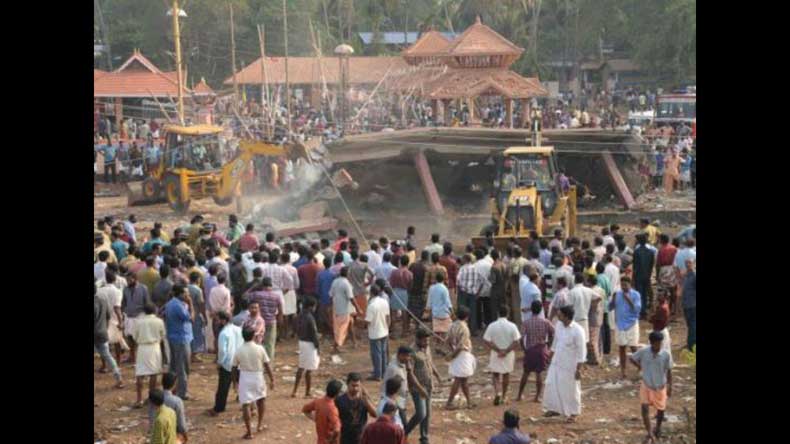The role of Indian Al-Qaeda in a series of blasts in the four southern states this year has come to light with the arrest of five persons from Madurai and Chennai in Tamil Nadu by the National Investigation Agency last month. One of the members has reportedly told interrogators that they believe that Al-Qaeda’s ideology is the only way to “Islamise” the county. He has also termed the practices preached by ISIS as “barbaric.” According to a senior Ministry of Home Affairs official, the group’s main idea was to spread fear rather than kill. That is why the explosives were found to be of low intensity. “Though IED was used in all the explosions, no proper detonator was used in them,” the official has been quoted as saying.
The National Investigation Agency (NIA) has found that there is reason to suspect a striking similarity in all the explosions that shook different towns of South India this year and the blast at the BJP office in Malleswaram, Bengaluru, on 17 April 2013. At that time the Tamil Nadu police had in fact received anonymous threats warning that courts in other states would be targeted soon. True to their words, terrorists struck in Chittoor, Andhra Pradesh, Mysuru in Karnataka and Ernakulam, Kollam and then Malappuram in Kerala.
The latest of the blasts had taken place at a court premises in Malappuram in north Kerala as the state celebrated its 60th birthday on 1 November. In fact, the role of the terror organisation, in varied names and identities, in these blasts has sent alarm bells ringing in the Kerala police, which has been on the trail of various outfits active in the state’s northern districts. In Malappuram, a time bomb was fitted inside a pressure cooker and placed under a parked car in the precincts of the district collector’s office. Similar blasts had occurred in the past few months at the collector’s office in Ernakulam and Kollam. Though the blast was reported to be mild in nature, it was a grim reminder to the state government on the growing activities of terrorist groups in every nook and corner of the state. It was also a pointer to how “God’s Own Country” has become a fertile ground for the growth of Islamist jihadists over the years, with tacit support from various political parties. As in the past, in Malappuram too, the police found propaganda material and inflammatory documents at the blast site. A box was also recovered on which the label of an organisation, “Base Movement”, was pasted along with a photograph of Osama bin Laden. Leaflets strewn at the place mentioned the lynching of Mohammed Akhlaq, who was hacked to death by a mob in Uttar Pradesh in September last year over alleged possession of beef, sparking countrywide outrage. In a video which was saved in a pen drive found from the blast spot in Malappuram, the outfit claimed responsibility for the low-intensity explosion.
Earlier in the blasts on the premises of Kollam collectorate and at a court complex in Mysuru in neighbouring Karnataka, the same organisation, Base Movement, had claimed responsibility, saying they were to avenge the hanging of Yakub Memon in the Mumbai blasts case and alleged encounter killing of Ishrat Jahan in Gujarat. Indications are that Base Movement is the new avatar of Al-Ummah, a Tamil-Nadu based terror outfit. Close analysis of explosive devices at each site has revealed striking similarities in bombs, suggesting that one particular group must be involved in all the blasts. Also suspect is the similarity of the messages. The message, written in broken English, found at the Malappuram blast scene is similar to a Base Movement note sent to the authorities in Andhra Pradesh’s Chittoor court complex last April. It is said that recent investigations by the Bengaluru police into the activities of Al Ummah had also revealed that it had revived itself under the Base Movement banner, with allegiance to Al Qaeda and joined hands with a few regional outfits in South India. Kerala DGP Loknath Behra has confirmed that the Base Movement terrorists captured from Madurai were involved in Kollam and Malappuram blasts.
At the time of the blasts itself it was suspected that Base Movement is just a frontal organisation for Al Qaeda to spread its tentacles in this southern state. It looks like the outfit, apparently operating from Tamil Nadu, has developed contact people in all the four southern state. Officials point out that the name Base Movement is a derivative from the word Al-Qaeda, which means foundation or basis. According to Wikipedia, the initial “al” is the Arabic definite article the and hence the base. Base Movement is also said to be a reference to Al Qaeda in the Indian Subcontinent (AQIS) and was formed sometime in August 2014. At that time the official name was referred as “Organisation of the Base of Jihad in the Indian Subcontinent”.
As in the case of north Kerala, such outfits have been sprouting up regularly with the authorities led by successive governments of the Left and the Right turning a blind eye to their activities. It is obvious that these outfits, however insignificant they might be, have been patronised for their share in the vote bank politics of Kerala’s long-standing bipolar situation. The creation of Malappuram district itself is because of these pressure tactics. Since different organisations are staking claim to blasts happening at regular intervals in Kerala, the government has set up a special investigation team to probe the blasts and bring those who indulge in these violent acts to justice.


